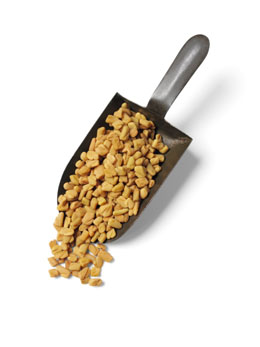
Fenugreek for Lactation
Scientists are unable to answer the question as to, how does fenugreek help in lactation? It is probably due to the hormone precursors present in it, which boost breast milk production. It has been observed that the milk production increases in about 24 to 72 hours after consumption of this seed. It is said that milk production increases by 900% after consumption of fenugreek. At times, an automatic drain pump is required to drain out excess milk, which was not consumed by the baby. Research has established the fact that it has helped a majority of lactating mothers, but there are cases in which there is no effect after its usage.
Its another benefits is that, even after a woman stops taking fenugreek seeds, the milk production does not reduce. It remains the same, but the mother will have to maintain the adequate milk supply by breast stimulation.
This seed is approved by the FDA, therefore, it safe for consumption. Boil a cup of water and add ½ teaspoon of fenugreek to the water. Bring it to a boil and then let it steep for 15 minutes. Let the water cool down to room temperature. After the water comes to room temperature drink the water and chew the seeds. You will have to consume this mixture twice a day, ideally once in the morning and once in the evening. There are some women who do like its taste, and they can use it in tea. But, the effect of using fenugreek in tea is not similar to consuming it directly. These days, its capsules are also available in the market and the dosage of these capsules vary from one brand to another. However, most of the brands suggest three capsules a day.
Some women also complain of maple-like smell in their urine and sweat, after the consumption of this seed. There are some who complain that their babies urine also displays the same smell. Diarrhea can be caused by fenugreek in some women, but reducing the dosage or stopping the herb totally helps to prevent such a condition.
Lactating women who have been administered insulin, have noted that there was a decrease in their insulin dose after they started consuming fenugreek. This is because fenugreek lowers the blood sugar level. It may reduce asthma symptoms in some women.
Although its consumption is considered safe option for lactating women, it is important to consult your physician before starting its consumption. There are chances that it can have adverse effect on some women. Therefore, it is better to consume it under medical supervision.

